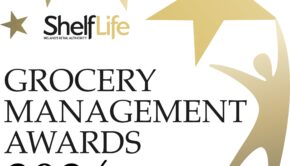Fine Gael bill goes after ‘hello money’

Fine Gael agriculture spokesman Michael Creed TD puts forward the party's Private Member's Bill which would ban unfair practices such as 'hello money'
11 September 2009
Up to 100,000 Irish jobs are at risk through supermarkets forcing suppliers to pay €160 million a year in ‘hello money,’ Fine Gael has claimed. According to the party’s agricultural spokesman Michael Creed, suppliers are “terrified to acknowledge” these payments for fear of losing business. However, Creed said through his “extensive” industry contacts he knows the practice of paying to secure shelf-space is widespread, “with many individual food suppliers paying up to €1 million in ‘hello money’ each year.” He added that 10 companies were forced to pay €30 million during a four month period.
Creed made his comments at the publication of a Private Member’s Bill to eliminate ‘hello money’ launched the day before Tánaiste Mary Coughlan published her department’s grocery trade proposals for consultation. While it is not yet known if the Government’s code of conduct will be voluntary, Creed has said this would be “utterly pointless and have little or no impact.”
‘Hello money’ is currently illegal under the Competition Act of 2006, but Creed believes this isn’t being enforced “because the onus is on the supplier to initiate court action.” Fine Gael’s Food (Fair Trade and Information) Bill 2009, would make it an offence for retailers to demand money from suppliers for advertising, displaying, or providing selling space for goods.
Commenting to ShelfLife after the launch, FDII’s head of Consumer Foods, Shane Dempsey said that Fine Gael’s proposed bill “should be commended,” adding: “FDII has consistently called for the introduction of a code of practice and an ombudsman with powers to investigate the market whilst providing anonymity to individual suppliers, and will be making its own submission to the Tánaiste’s consultation process in the coming weeks.”
Musgrave stated that it would “welcome any moves to control and eliminate such sharp practices from the Irish grocery sector. However, a distinction needs to be made between sharp practices and legitimate negotiation which is vital to driving down costs and delivering value to consumers.”



 Print
Print






Fans 0
Followers